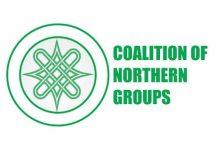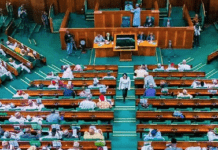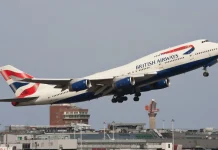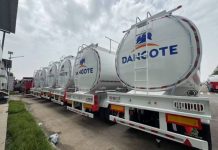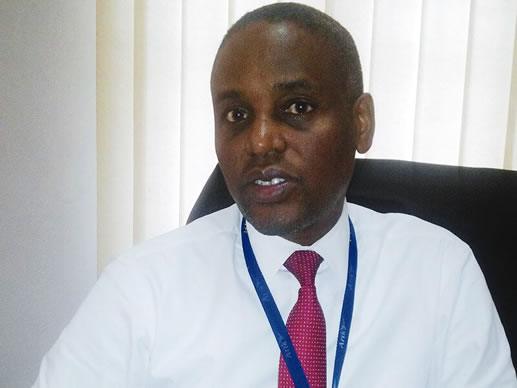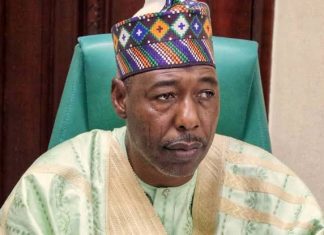The managing director of Aero Contractors, Capt. Ado Sanusi, discusses his goals for the airline and the repayment of debts he has taken out from the Asset Management Corporation of Nigeria (AMCON) since 2017. This interview was conducted with OLUSEGUN KOIKI. Quotes:
How far along are you with loan repayment, sir? Asset Management Corporation of Nigeria (AMCON) gave you some startup loans when you were appointed CEO of Aero Contractors.
When I arrived in 2017, the airline had been closed for almost eight or ten months, and I had to take out a loan in order to restart it. As you are aware, there was a debt that actually placed Aero Contractors under receivership by the Asset Management Corporation of Nigeria (AMCON), which then took it over, converted some of it into equity, and now owned 60% of the airline.
The exact amount is beyond me, but I believe it to be around N300 million, or half a billion naira.
The Asset Management Corporation of Nigeria (AMCON) refused to grant us the N3.5 billion we requested when we joined.
About N500 million was approved by AMCON for our takeoff. The funds arrived in installments, which we utilized to stabilize the company.
For the first time, four of our fleet’s aircraft and helicopters were in flight when we performed the first C-check. It was everything moving in the correct way, and recovery seemed imminent.
I was subsequently transferred to another project, but regrettably, the company’s fortunes took a sharp turn for the worst once more, and it was shut down.
I was requested to come and revitalize the company after being summoned back from that project, but I didn’t want to go back.
They actually spoke with me for almost six months, and I declined. However, in our final exchange, the AMCON management told me, “Well, if you don’t, we will have no option, but to liquidate.”
I didn’t want to witness the history of aviation firms like Aero Contractors, which have been in business for more than 65 years.
As you might imagine, at conferences, nations declare, “Oh, this company has been in existence for 40 years.” Over 50 years have passed since the founding of our business.
Ethiopian Airlines says, “Oh, we’ve been in business for more than 70 years.” Nigeria will eventually arrive, and we won’t have any businesses that have been there for more than 40 or 50 years.
At the very least, I thought we ought to preserve this company’s legacy. Dornier Aviation in Kaduna and Aero Contractors are, I believe, the two oldest aviation firms in Nigeria. Naturally, that’s because Nigeria Airways has been liquidated. I decided to step in because I believed that we shouldn’t let AMCON liquidate the airline because these are old companies.
Even though I didn’t want to, I returned. The business was closed for around eight months, as I mentioned. They had to pay salaries and other obligations.
The reason I returned, as you recall, was right after the COVID-19 pandemic.
I stated that funds were authorized by the Federal Government for all airlines at a single-digit interest rate. I said that the only way I could return after COVID was if I could get the loan. In order to turn the business around and repay the loan within 12 or 24 months, we requested a loan of approximately N3.5 to N3.7 billion, as I recall.
We demonstrated that, should we be granted a loan, we could repay it. In principle, they so consented to lend us the money.
After a while, AMCON granted us another loan, this one initially totaling, I believe, just over N500 million. Of course, we got to work, and then we brought the first airplane back to life, the helicopter industry back to life, and so on.
After that, we began to pay them. I’m glad to report that we have now paid off everything.
What was the duration of your loan repayment?
In December 2022, we received the loan, and in March or so, we completed all of the payments.
After you leave, do you think this company will still be around, sir?
This is a really fascinating topic since, when I moved to 2021 after joining the firm in 2017, I believed I had moved it to a point where it could no longer return to the closed-down state it had been in prior to my arrival, but regrettably, it did.
My challenge now is to make sure that we have passed that threshold. I’m creating an institution that will last long after I’m gone, not one that is centered around me.
My goal is to make sure that the business can survive after I go. And I am only able to leave that legacy.
At this age, my only goal is to leave a legacy that will allow the business to prosper after I’m gone, continuing to hire Nigerians and young people to work in our top-notch Maintenance, Repair, and Overhaul (MRO) facilities in West and Central Africa.
I am so pleased to have brought our MRO back to life. We are currently able to perform heavy checks and repairs on Boeing 737NGs.
A Senegalese aircraft and a Ghanaian aircraft are recently completed. I hope that this location would eventually serve as a maintenance hub for West and Central Africa.
In your opinion, what is the new Tax Reform Act that the federal government recently passed into law and is expected to go into effect in 2026?
I would want to start by discussing the aviation sector that I represent. Before the tax reform bill was introduced, we went to the Federal Government since the Nigerian aviation industry was already facing difficulties.
Value Added Tax (VAT), customs taxes, and other exemptions are among the many things we have requested.
The Federal Government recognized our aviation industry’s difficulties and approved the majority of our demands; today, they are returning everything to us.
We no longer have any of the concessions we had, and we are now responsible for paying for everything. In my opinion, tax reform is a reality, but the federal government and the president will examine each industry’s unique problems and find solutions. I think it will. It will not be a sudden occurrence.
Most regions of the world already exempt transportation from VAT, so how can we reinstate VAT in aviation? We say things like, “Well, the VAT is for the government, so the passenger is paying, but it raises the price of the ticket,” which then lowers the number of people who can purchase the ticket and, when that happens, lowers my ability to make a profit. It is extremely easy.
Remember that except from the food supplied in the airplane, we in this country do not manufacture anything related to aircraft. Local production of Jet A1 has been established in the nation, thanks to Alhaji Aliko Dangote. Prior to that time, however, everything was imported.
Yes, taxing the airlines can bring in a lot of money for the government because they cost $30 million to $40 million. You can figure out how much money you will make if you impose even a 10% tax.
It is my responsibility to figure out how to pay for the aircraft, including the customs charge that was imposed on it.
I find it really difficult to make the payment now, even if it’s through a dry lease.
Yes, customs officers bring in trillions of naira for the Federal Government, but they also destroy businesses, particularly in the aviation industry.
If the new law is applied as is, it will lead to social difficulties and thousands, if not millions, of job losses. The government will be wealthy, but it will also have security issues.
There are millions of young people without jobs while you have trillions in your coffers.
This is why developed nations are examining and balancing the two factors of revenue generation and unemployment rate. You cannot have millions of young people without jobs and have that much money in your coffers. You have to let the company grow and hire staff. Furthermore, that is what we are requesting.
How have you gone about presenting your case to the authorities prior to the implementation starting in January 2026?
I am confident that this interview will allow the Federal Government to hear our grievances and take the necessary action.
They are not required to possess any further information. We, as the stakeholders, are informing them that this will negatively impact not just the airlines but our entire industry.
For the parastatals, the tax reform will cause certain issues. According to what I’ve read—and I’m not sure whether it’s accurate—the agencies have no control over their Internally Generated Revenues (IGRs). In the event that the agencies lack authority over their IGRs, the money paid by the airlines would go straight to the Federal Government’s account, which would then return the funds to the agencies.
Recall that the government had withheld 50% of the agency revenues into the Treasury Single Account (TSA) at the start of this administration. Instead of focusing on profit, these parastatals aim to recuperate costs.
Read Also: Youths Receive Sewing Machines, Hairdryers as RCCG Hosts Empowerment Programme
Since the Federal Airports Authority of Nigeria (FAAN) was established as a business to make money, I don’t mind if the Federal Government takes money from the Nigeria Civil Aviation Authority (NCAA). However, I’m worried about the NCAA and the Nigerian Airspace Management Agency (NAMA), whose concept is for cost recovery, and you cut half of their revenue. Since they cannot survive on fifty percent, they will be destroyed if they are adhering to the cost recovery approach.
In my opinion as an airline operator, if the parastatals are making do with half of their earned revenue, then I have been overcharged. I’m overpaying, then.
Regarding the government’s claim that the Tax Reform Act aims to lessen systemic corruption, where do you stand?
Yes, I agree with you. If there are issues with collection or remittance, we Nigerians will assign the work to another organization.
How can we be certain that the corruption won’t spread to that other location? Why don’t we take action against that agency’s corruption? How about we deal with that issue where it is? Why not address the issue of parastatals collecting but failing to remit and ensure that we employ all available methods, such as modernizing, digitizing, or electronizing it? There are numerous ways we may limit human interaction and guarantee that corruption is kept to a minimum.
If we catch someone, we set an example for others, and they will follow suit, but instead we say, “Oh, stop it.” Don’t do this, don’t gather it, don’t do this.
By doing this, we’ve probably passed the problem forward to the next agency that will be working on the same problem as them. In addition to increasing efficiency and collection, tax reform is unquestionably intended to reduce corruption. However, if we fail to address the underlying problems and employ technology to combat corruption, we will likely find ourselves in a similar situation under a different name.
Can airlines be killed by the Tax Reform Act?
If it doesn’t address the unique issues in the aviation business, the Tax Reform Act will help hasten the death of several airlines.
Join Television Nigerian Whatsapp Now
Join Television Nigerian Facebook Now
Join Television Nigerian Twitter Now
Join Television Nigerian YouTUbe Now

